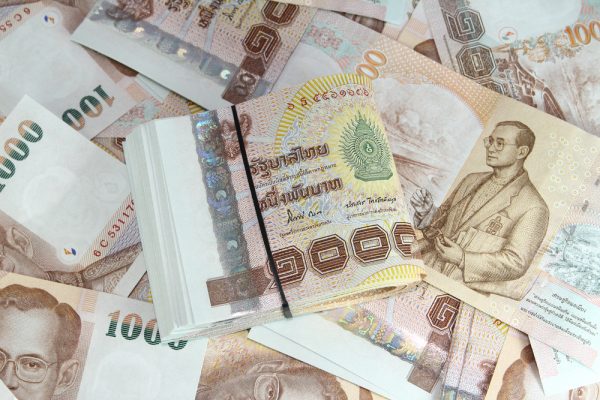For many countries in Southeast Asia, September is budget season. It’s a time when national legislatures and executive branches begin horse-trading and hammering out details for next year’s taxing and spending plans. In recent times, the pandemic complicated this process because accurate economic forecasting was basically impossible and governments had to run big deficits and take on debt while their economies were shuttered.
A lot of guesswork and uncertainty goes into any budget, but the last couple of years were especially tricky. With the worst of the pandemic hopefully behind us, this year the job of fiscal planners should be a bit easier and Thailand’s proposed 2023 budget in many ways signals a hoped-for return to normalcy.
The key thing to know about budgeting in Thailand is that the government does not like to run deficits or take on debt. Thailand is first and foremost an export-oriented economy: It is a regional leader in exporting manufactured goods like cars, as well as services like tourism. Export-oriented economies need stable currencies, and one way to keep your currency from fluctuating too much is to run a tight fiscal ship. Don’t spend too much, don’t borrow too much, accumulate large foreign currency reserves and don’t run deficits in the current account.
There’s not much Thailand can do in the short-term about the current account, given that energy imports like coal and oil have been very expensive lately. But it looks like oil prices have peaked, and a strong recovery in the tourism industry next year will help push the current account back toward surplus. In the meantime, the government is looking to keep increases in spending and borrowing at modest levels.
The 2023 budget is expected to clock in at 3.18 trillion baht (about $88 billion at current exchange rates). This represents a 3 percent increase from the current year, and a 3 percent decrease from 2021 when budget allocations reached their highwater mark. As mentioned above, Thailand has been eager to get these spending levels down. In 2022 the budget contemplated aggressive cuts based on somewhat wishful thinking about economic growth. In 2023 the economy is more realistically expected to grow by about 4 percent, and this should provide a bump in revenue to offset moderate spending increases.
This is important because the government also wants to get public debt under control. From 2019 to 2020, direct government borrowing increased by 29 percent. In 2021, it increased by another 24 percent. By June of this year, total debt had more than doubled from 2017. Obviously, this was a function of the pandemic when almost every government in the world had to borrow to fund shortfalls when the pandemic closed down their economies.
With things getting back to normal, the government wants to slow down the rate at which it is accumulating liabilities on its balance sheet. The 2023 fiscal deficit is projected to be around 695 billion baht or $20 billion, still a bit higher than pre-pandemic levels but a big decrease from 2020 and 2021. We should expect to see this trend continue in subsequent budgets, as fiscal planners will almost certainly seek to keep a tight lid on both spending and debt for the foreseeable future.
I think Thailand’s approach to budgeting is also usefully contrasted with that of its neighbor Indonesia. Indonesian fiscal planners are likewise proposing a modest decrease in spending in 2023, but overall expenditures will still be 32 percent higher than their pre-pandemic baseline in 2019. Thailand’s 2023 spending, by comparison, will be only 6 percent higher than it was in 2019. So it does not appear that the pandemic will reshape the political economy of Thailand or its fiscal policies in a big or lasting way.
This reflects differing policy goals. In Thailand, the most important thing is to keep the baht stable and maximize exports, and to do that they need to keep a close eye on spending and debt; otherwise capital markets will punish them. Indonesia, on the other hand, has shown much less deference to capital markets, and has used the pandemic and its aftermath to push through a number of big structural shifts including reforming fuel subsides, raising taxes and increasing public spending.


